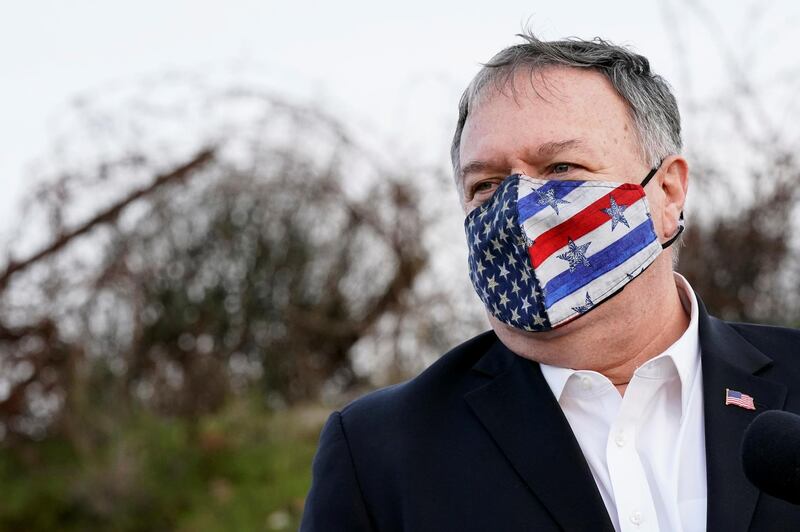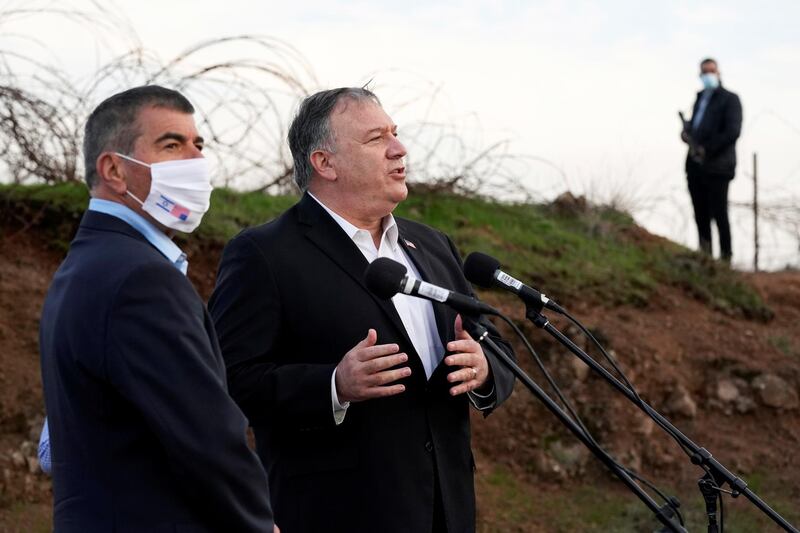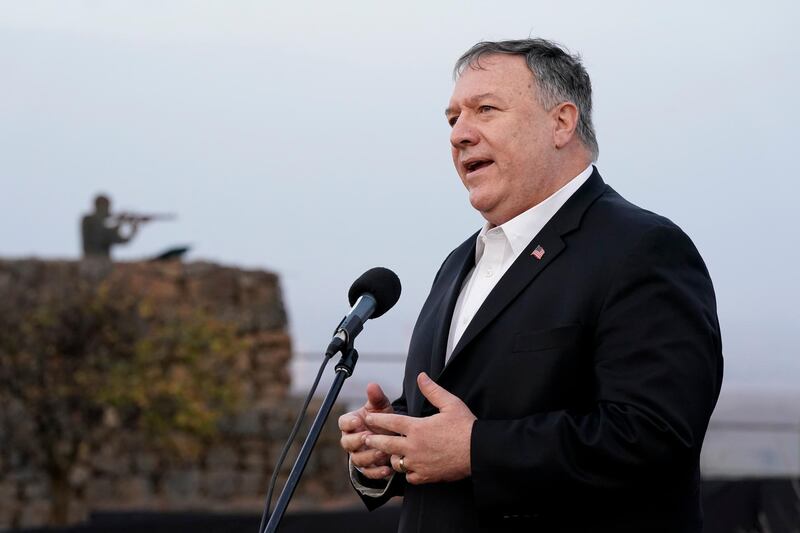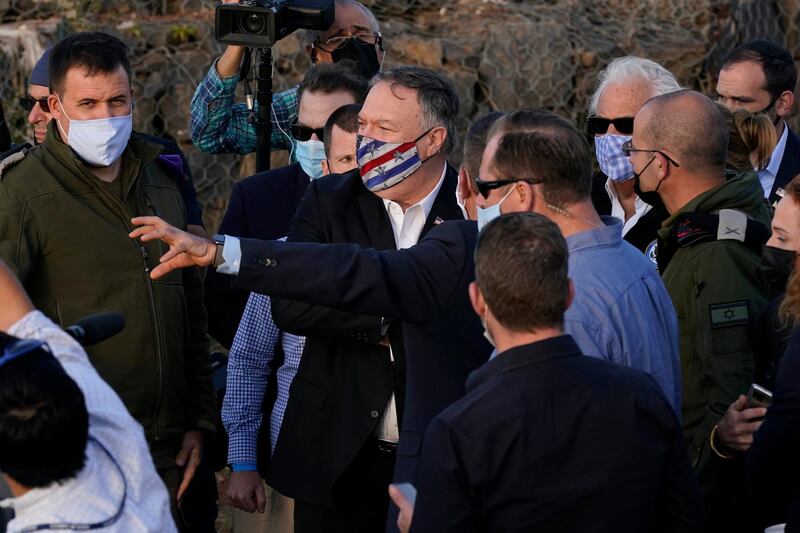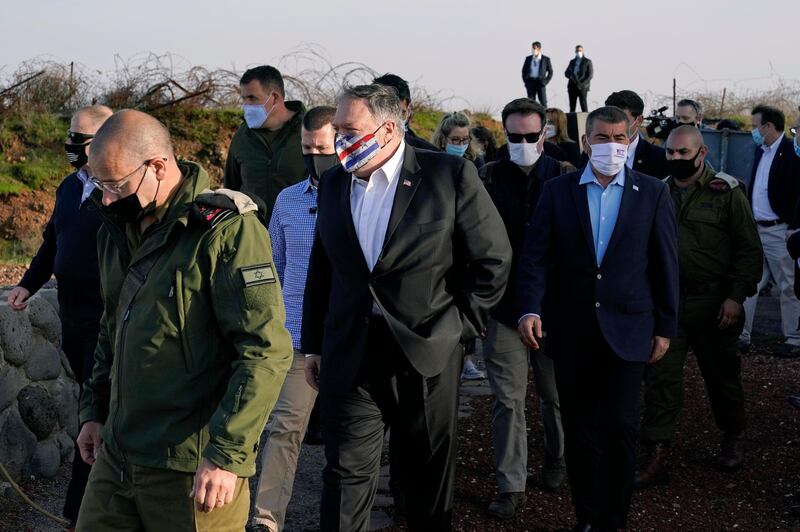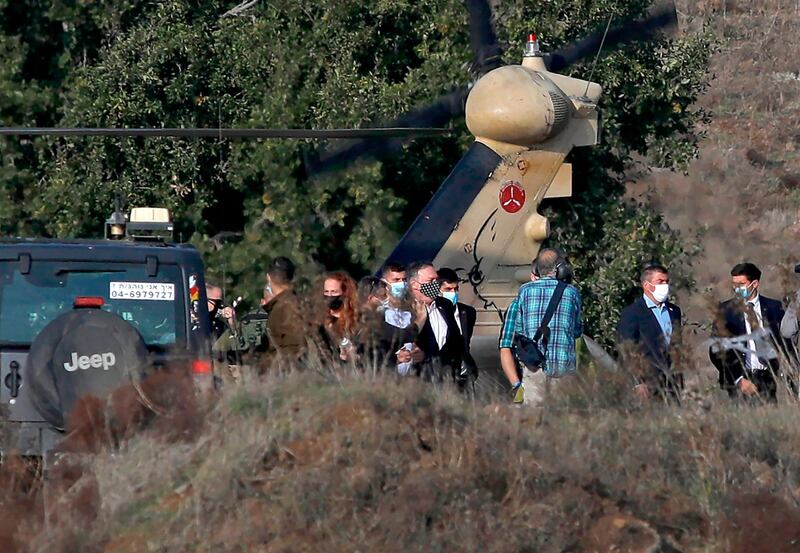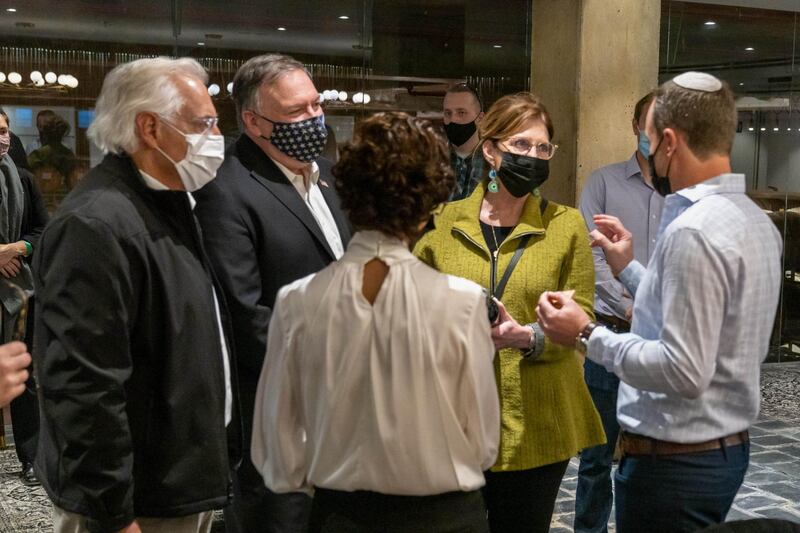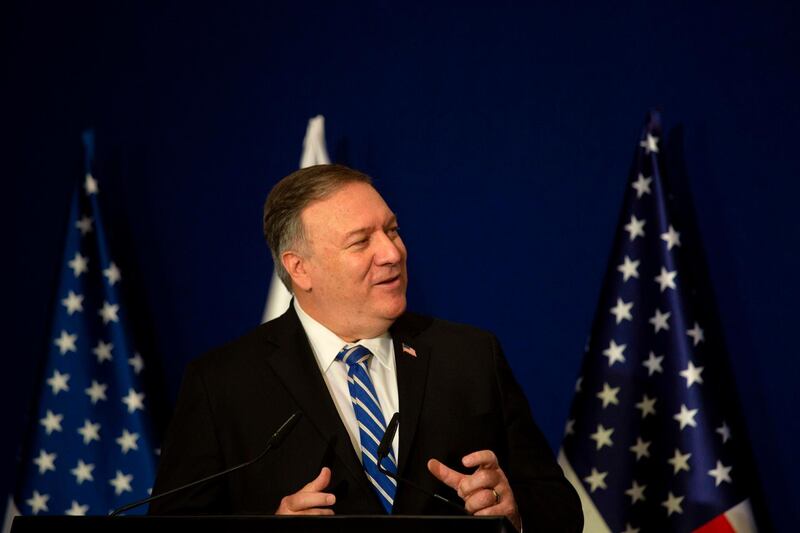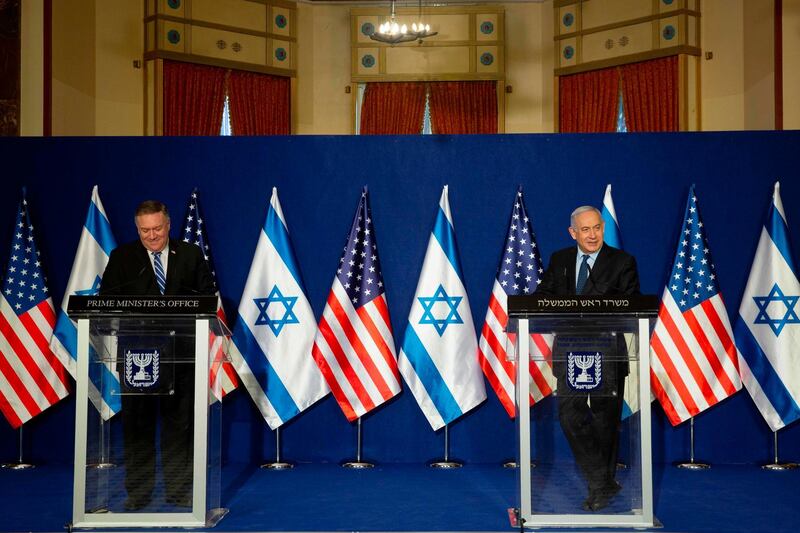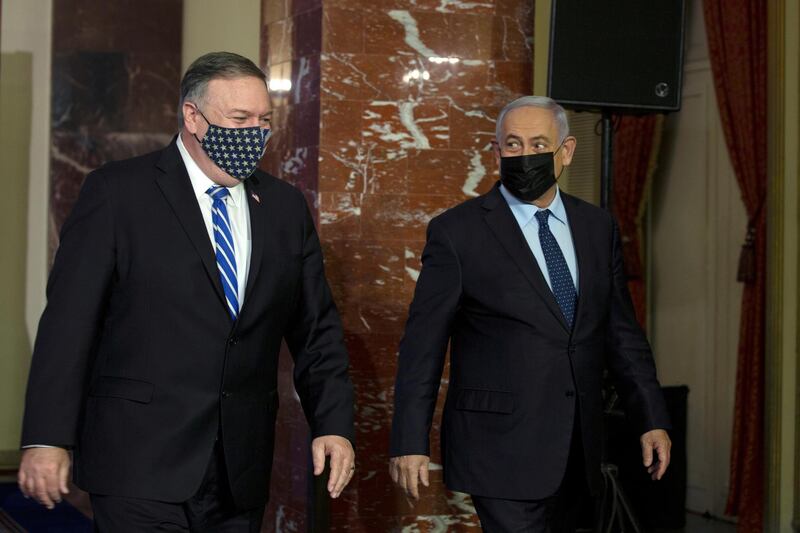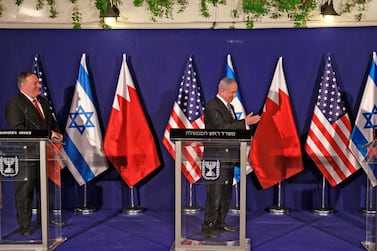US Secretary of State Mike Pompeo on Thursday became the first top American diplomat to visit an Israeli settlement in the occupied West Bank, after announcing new measures against organisations seen as backing a boycott of Israel.
The visit to the Psagot winery, south-west of Ramallah, came ahead of Mr Pompeo travelling to the occupied Golan Heights in a further break with decades-long US protocol.
“Enjoyed lunch at the scenic Psagot winery today,” Mr Pompeo tweeted, criticising the European Union as pernicious for ruling that settlement products must be labelled as such.
Psagot this year named a wine after Mr Pompeo, in honour of his declaration that Washington no longer considers settlements illegal.
Bottles could soon hit US shops with a new “Made in Israel” tag, after the State Department announced on Thursday it was scrapping its requirement that settlement products carry a West Bank label.
“The visit is a sign of the commitment and friendship between the settlement movement and Israel’s friends in the United States,” said Yisrael Ganz, head of the Binyamin Regional Council, which governs dozens of settlements.
Before Mr Pompeo’s arrival, Palestinian Prime Minister Mohammad Shtayyeh said the Psagot visit would set a “dangerous precedent” by seeking to legitimise Israeli settlements that are considered illegal by the majority of the international community.
US Secretary of State Mike Pompeo lands in Israel
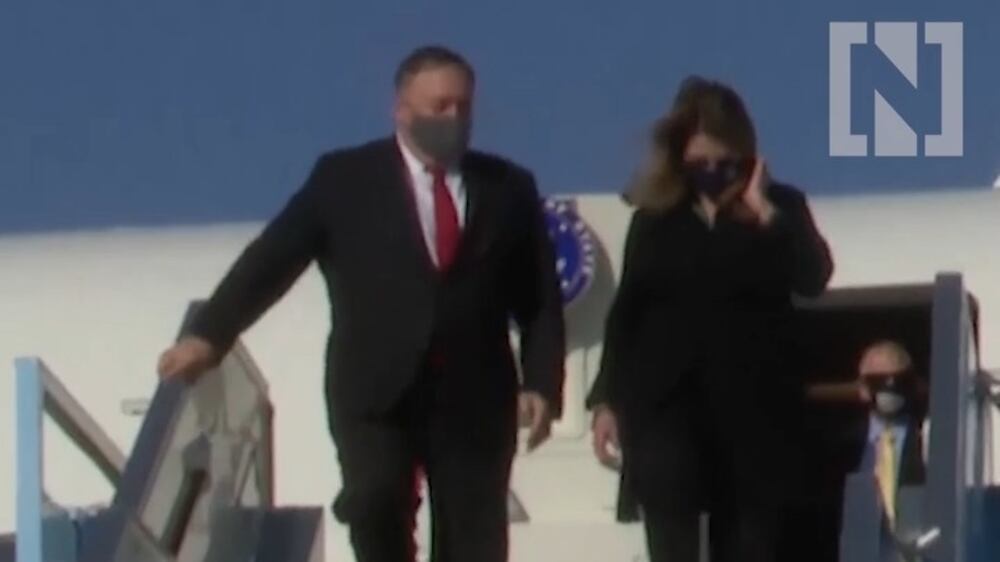
More than 440,000 settlers live in the West Bank alongside about three million Palestinians, according to Israeli NGO Peace Now.
Residents of the nearby town of Al Bireh say parts of the Psagot estate are on land stolen from Palestinians.
"We tell the Americans, when you drink that wine, you are drinking the blood of the Palestinian people," resident Abdeljawab Saleh said on Wednesday.
Israel has continued settlement expansion and this week authorities published plans to add more than 1,200 homes to a settlement in occupied East Jerusalem, a move that drew criticism from the UN and the EU.
Washington's stance on settlements is part of a sweeping revision of policy during Donald Trump's presidency, under whichthe US recognised Jerusalem as Israel's capital and accepted the country's sovereignty over the Golan Heights.
During the visit to the Golan Heights, Mr Pompeo stood on a windswept hilltop and declared the territory was "a central part of Israel".
“I very much wanted to come here on this trip to tell the world that we have it right,” he said, in asserting Israeli sovereignty over the land it captured from Syria in the 1967 Arab-Israeli war.
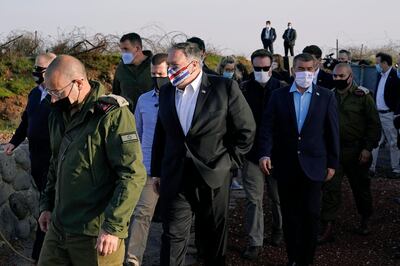
During what is expected to be Mr Pompeo’s last tour of the region before Joe Biden, the US president-elect, takes office in January, the secretary of state also announced measures against organisations perceived as anti-Israeli.
“We will regard the global anti-Israel BDS campaign as anti-Semitic,” Mr Pompeo said, referring to the Boycott, Divestment, Sanctions movement.
Washington will determine which organisations “engage in hateful BDS conduct” and cut US funding, alarming some NGOs which said they could be targeted for their legitimate criticism of the Israeli government.
The decision to target “groups advocating for using peaceful means, such as boycotts, to end human rights violations against Palestinians ... is a gift to those who seek to silence, harass, intimidate and oppress those standing up for human rights around the world”, Bob Goodfellow, the interim executive director of Amnesty International USA said on Thursday.
In recent months Washington has brokered landmark deals between Israel and two Gulf nations – the UAE and Bahrain – whose foreign minister made his first official visit to Israel on Wednesday.
“[I am] confident that this emerging co-operation between Bahrain and Israel will pave the way to a dawn of peace for the entire Middle East,” Foreign Minister Abdullatif Al Zayani said on Wednesday, standing alongside his US counterpart and the Israeli premier.
The Gulf deals broke with consensus among Arab countries that a Palestinian-Israeli peace deal must precede any such bilateral ties and Mr Al Zayani emphasised that Bahrain remains committed to a two-state solution to the conflict.
Manama has not followed the US in recognising Jerusalem as Israel's capital but Bahrain's Foreign Ministry confirmed to The National the meetings took place in Jerusalem.
The Palestinians recalled their ambassadors to Manama and Abu Dhabi in protest at the deals with Israel, although a senior Palestinian official told Reuters the diplomats were to be sent back.
